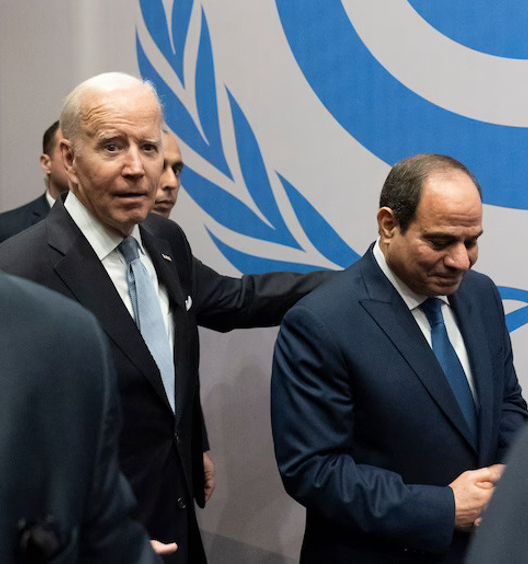Egyptian President Abdel Fattah el-Sisi has reportedly rejected multiple requests from the United States to send arms and military equipment to Ukraine. The New York-based Wall Street Journal reports that U.S. Secretary of Defense Lloyd Austin received a “noncommittal” reply in March when he asked Sisi to send weapons to Ukraine.
The American daily said Washington had asked Cairo to provide Kiev with artillery shells, antitank missiles, air defense systems and small arms, but Egyptian officials privately said they had no intention of sending arms to Ukraine.
It added that since Austin’s meeting with the Egyptian president, senior US officials have made multiple requests for Cairo to follow through on the request to no avail. The rebuff of Washington’s requests comes while a trove of classified US documents revealed in April that Sisi first planned to secretly supply Russia with 40,000 rockets and told officials to keep the deal secret “to avoid problems with the West.”
Another batch of leaked documents revealed that Egypt later backed down from arms delivery to Russia under US pressure and agreed to produce artillery ammunition for Ukraine. While attempting to stay neutral in the war between Russia and Ukraine, Egypt maintains a close relationship with Moscow and imports most of its wheat from Russia.
Despite having a long-standing diplomatic and military relationship with Russia, Egypt has also for decades been a close partner of the US in the Middle East and receives more than $1 billion a year in US military aid.
Ever since the beginning of the war last February, Western countries, led by the United States, have been levying sanctions against Russia while pouring tens of billions of dollars worth of advanced weapons into Ukraine – steps that Moscow says would only complicate the standing situation and prolong the hostilities.
Moscow says it started the war in order to defend the pro-Russian population in the eastern Ukrainian regions of Luhansk and Donetsk against persecution by Kiev, and also to “de-Nazify” its neighbor.
Russia maintains that the West’s anti-Russian agendas, including its eagerness for inclusion of Ukraine in NATO – and, therefore, the Western military alliance’s expansion right up to Russia’s borders – forced Moscow to launch the war on Kiev.
Back in June, the Kremlin warned that any supply of long-range missiles to Kiev by its Western backers would lead to a further round of “spiraling tension” in the ongoing conflict.


